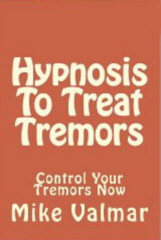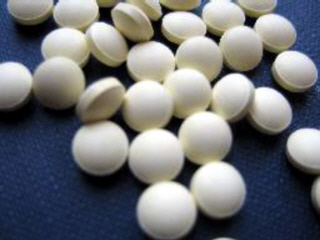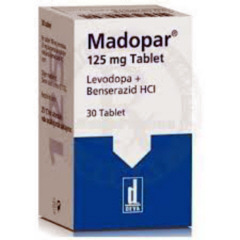31st May
2013 - New book
HYPNOSIS AS TREATMENT OF TREMORS (Kindle edition)
Mike Valmarr
 Publisher's
description : Hypnosis as a treatment for Tremors - is a excellent book,
loaded with information. It will be released as a soft cover soon. This is a
excellent book for anyone suffering with tremors. It starts off explaining what
tremors are, what is Parkinsons, and what can be done with hypnosis as a cure.
It is a smaller book, but explains everything in a easy to read format. I have
kept this book short, and to the point. It is neither boring, or dull. You will
better understand the different types tremors, and what causes them. You will
understand the part that hypnosis plays in controlling your issue. The whole
process is explained, and should answer any questions that you have about
tremors, and its treatment.
Click here for more details. For
more books concerning Parkinson's Disease go to
Parkinson's Disease Books.
Publisher's
description : Hypnosis as a treatment for Tremors - is a excellent book,
loaded with information. It will be released as a soft cover soon. This is a
excellent book for anyone suffering with tremors. It starts off explaining what
tremors are, what is Parkinsons, and what can be done with hypnosis as a cure.
It is a smaller book, but explains everything in a easy to read format. I have
kept this book short, and to the point. It is neither boring, or dull. You will
better understand the different types tremors, and what causes them. You will
understand the part that hypnosis plays in controlling your issue. The whole
process is explained, and should answer any questions that you have about
tremors, and its treatment.
Click here for more details. For
more books concerning Parkinson's Disease go to
Parkinson's Disease Books.
21st May 2013 - New research
PEPPERS REDUCE THE RISK OF PARKINSON'S DISEASE
Annals of Neurology [2013] May 9 [Epub ahead of print] (Nielsen SS, Franklin GM,
Longstreth WT, Swanson PD, Checkoway H.)
Complete abstract
Nicotine has long been known to reduce the risk of Parkinson's Disease. So
researchers assessed whether the risk of Parkinson's Disease is associated with
the consumption of nicotine-containing vegetables edibles from the same
botanical family as tobacco, Solanaceae, which includes peppers, tomatoes, and
potatoes.
 When
people with Parkinson's Disease were compared with those people that did not
have it, Parkinson's Disease was found to be less likely in those people that
ate more peppers, tomatoes, tomato juice, and potatoes during adulthood. An
association was also found for just peppers. The likelihood of developing
Parkinson's Disease was an average of 81% as likely, and in some people down to
65% as likely. The association was intensified when the nicotine concentration
of the vegetables was higher. So it was nicotine that caused the effect. The
effect largely occurred in people who had never used tobacco or who had smoked
cigarettes for less than 10 years.
When
people with Parkinson's Disease were compared with those people that did not
have it, Parkinson's Disease was found to be less likely in those people that
ate more peppers, tomatoes, tomato juice, and potatoes during adulthood. An
association was also found for just peppers. The likelihood of developing
Parkinson's Disease was an average of 81% as likely, and in some people down to
65% as likely. The association was intensified when the nicotine concentration
of the vegetables was higher. So it was nicotine that caused the effect. The
effect largely occurred in people who had never used tobacco or who had smoked
cigarettes for less than 10 years.
Consumption of other vegetables was unrelated to the likelihood of developing
Parkinson's Disease.
For a printable version of
this articlee
click here.
In order to refer to this article on its own
click here.
17th May 2013 - New research
PRELADENANT CLINICAL TRIAL RESULTS FOR PARKINSON'S DISEASE
Movement Disorders [2013] Apr 15 [Epub ahead of print] (S.A.Factor, K.Wolski,
D.M.Togasaki, S.Huyck, M. Cantillon, T.W.Ho, R.A.Hauser, E.Pourcher)
Complete abstract
Preladenant is a selective adenosine A2A receptor antagonist under investigation
for the treatment of Parkinson's Disease. Instead of directly stimulating the
formation or activity of dopamine, which is what most Parkinson's Disease drugs
do, it can indirectly affect the dopamine receptors, which is what dopamine
agonists affect. Two other drugs of this type that are being investigated
are istradefylline (fairly unsuccessfully) and caffeine, which is in coffee, tea
and cola drinks.
 Preladenant
was taken in 5mg dosages twice a day alongside L-dopa for nine months. Adverse
reactions caused 14% of people to cease taking it. Adverse reactions experienced
by some people were dyskinesia and constipation. Preladenant provided reductions
in "off" time by between 1 hour 24 minutes and 1 hour 54 minutes. "On" time
increased by between 1 hour 12 minutes and 1 hour 30 minutes.
For a printable version of
this article
click here.
In order to refer to this article on its own
click here.
Preladenant
was taken in 5mg dosages twice a day alongside L-dopa for nine months. Adverse
reactions caused 14% of people to cease taking it. Adverse reactions experienced
by some people were dyskinesia and constipation. Preladenant provided reductions
in "off" time by between 1 hour 24 minutes and 1 hour 54 minutes. "On" time
increased by between 1 hour 12 minutes and 1 hour 30 minutes.
For a printable version of
this article
click here.
In order to refer to this article on its own
click here.
UPDATE : Merck are discontinuing Preladenant because it failed to show any
benefit beyond that of a placebo in three studies concerning Preladenant. The
results of these studies will be presented at a scientific meeting and will be
submitted for publication in a peer-reviewed journal.
For more information
click here.
3rd May 2013 - New research
IS GENERIC MADOPAR AS GOOD AS MADOPAR ?
BMC Pharmacology and Toxicology [2013] 14 (1) : 24 (U.E.Gasser, A.Fischer,
J.P.Timmermans, I.Arnet)
Complete abstract
Madopar was compared against seven generic versions of Madopar to see if
they were as good as Madopar. Madopar, which is for the treatment of Parkinson's
Disease consists of L-dopa and benserazide, which helps to prevent the breakdown
of L-dopa before it is made use of. It is therefore the equivalent of Sinemet.
Madopar and Sinemet differ according to which countries they are available in.
For more information go to
Madopar. A generic version is supposed
to be interchangeable. However, generic versions are often different from the
original.
 Every
one of the seven generic versions of Madopar had one or two parameters outside
the specifications of Madopar. Deviations for the active ingredients ranged from
8% more benserazide to 7% less L-dopa in two of the tablet formulations.
Degradation products were measured in marked excess (26% more) in one capsule
formulation, and so could pose a safety concern. Deviations for the active
ingredients may go unnoticed by a new user of the generic product but may entail
clinical consequences when switching over. The results therefore suggest caution
when prescribing a generic version of Madopar or any other generic.
For a printable version of this article
click here. In order to
refer to this article on its own
click here.
Every
one of the seven generic versions of Madopar had one or two parameters outside
the specifications of Madopar. Deviations for the active ingredients ranged from
8% more benserazide to 7% less L-dopa in two of the tablet formulations.
Degradation products were measured in marked excess (26% more) in one capsule
formulation, and so could pose a safety concern. Deviations for the active
ingredients may go unnoticed by a new user of the generic product but may entail
clinical consequences when switching over. The results therefore suggest caution
when prescribing a generic version of Madopar or any other generic.
For a printable version of this article
click here. In order to
refer to this article on its own
click here.
.gif)
.gif)
 Publisher's
description : Hypnosis as a treatment for Tremors - is a excellent book,
loaded with information. It will be released as a soft cover soon. This is a
excellent book for anyone suffering with tremors. It starts off explaining what
tremors are, what is Parkinsons, and what can be done with hypnosis as a cure.
It is a smaller book, but explains everything in a easy to read format. I have
kept this book short, and to the point. It is neither boring, or dull. You will
better understand the different types tremors, and what causes them. You will
understand the part that hypnosis plays in controlling your issue. The whole
process is explained, and should answer any questions that you have about
tremors, and its treatment.
Publisher's
description : Hypnosis as a treatment for Tremors - is a excellent book,
loaded with information. It will be released as a soft cover soon. This is a
excellent book for anyone suffering with tremors. It starts off explaining what
tremors are, what is Parkinsons, and what can be done with hypnosis as a cure.
It is a smaller book, but explains everything in a easy to read format. I have
kept this book short, and to the point. It is neither boring, or dull. You will
better understand the different types tremors, and what causes them. You will
understand the part that hypnosis plays in controlling your issue. The whole
process is explained, and should answer any questions that you have about
tremors, and its treatment.
 When
people with Parkinson's Disease were compared with those people that did not
have it, Parkinson's Disease was found to be less likely in those people that
ate more peppers, tomatoes, tomato juice, and potatoes during adulthood. An
association was also found for just peppers. The likelihood of developing
Parkinson's Disease was an average of 81% as likely, and in some people down to
65% as likely. The association was intensified when the nicotine concentration
of the vegetables was higher. So it was nicotine that caused the effect. The
effect largely occurred in people who had never used tobacco or who had smoked
cigarettes for less than 10 years.
When
people with Parkinson's Disease were compared with those people that did not
have it, Parkinson's Disease was found to be less likely in those people that
ate more peppers, tomatoes, tomato juice, and potatoes during adulthood. An
association was also found for just peppers. The likelihood of developing
Parkinson's Disease was an average of 81% as likely, and in some people down to
65% as likely. The association was intensified when the nicotine concentration
of the vegetables was higher. So it was nicotine that caused the effect. The
effect largely occurred in people who had never used tobacco or who had smoked
cigarettes for less than 10 years.  Preladenant
was taken in 5mg dosages twice a day alongside L-dopa for nine months. Adverse
reactions caused 14% of people to cease taking it. Adverse reactions experienced
by some people were dyskinesia and constipation. Preladenant provided reductions
in "off" time by between 1 hour 24 minutes and 1 hour 54 minutes. "On" time
increased by between 1 hour 12 minutes and 1 hour 30 minutes.
For a printable version of
this article
Preladenant
was taken in 5mg dosages twice a day alongside L-dopa for nine months. Adverse
reactions caused 14% of people to cease taking it. Adverse reactions experienced
by some people were dyskinesia and constipation. Preladenant provided reductions
in "off" time by between 1 hour 24 minutes and 1 hour 54 minutes. "On" time
increased by between 1 hour 12 minutes and 1 hour 30 minutes.
For a printable version of
this article
 Every
one of the seven generic versions of Madopar had one or two parameters outside
the specifications of Madopar. Deviations for the active ingredients ranged from
8% more benserazide to 7% less L-dopa in two of the tablet formulations.
Degradation products were measured in marked excess (26% more) in one capsule
formulation, and so could pose a safety concern. Deviations for the active
ingredients may go unnoticed by a new user of the generic product but may entail
clinical consequences when switching over. The results therefore suggest caution
when prescribing a generic version of Madopar or any other generic.
For a printable version of this article
Every
one of the seven generic versions of Madopar had one or two parameters outside
the specifications of Madopar. Deviations for the active ingredients ranged from
8% more benserazide to 7% less L-dopa in two of the tablet formulations.
Degradation products were measured in marked excess (26% more) in one capsule
formulation, and so could pose a safety concern. Deviations for the active
ingredients may go unnoticed by a new user of the generic product but may entail
clinical consequences when switching over. The results therefore suggest caution
when prescribing a generic version of Madopar or any other generic.
For a printable version of this article